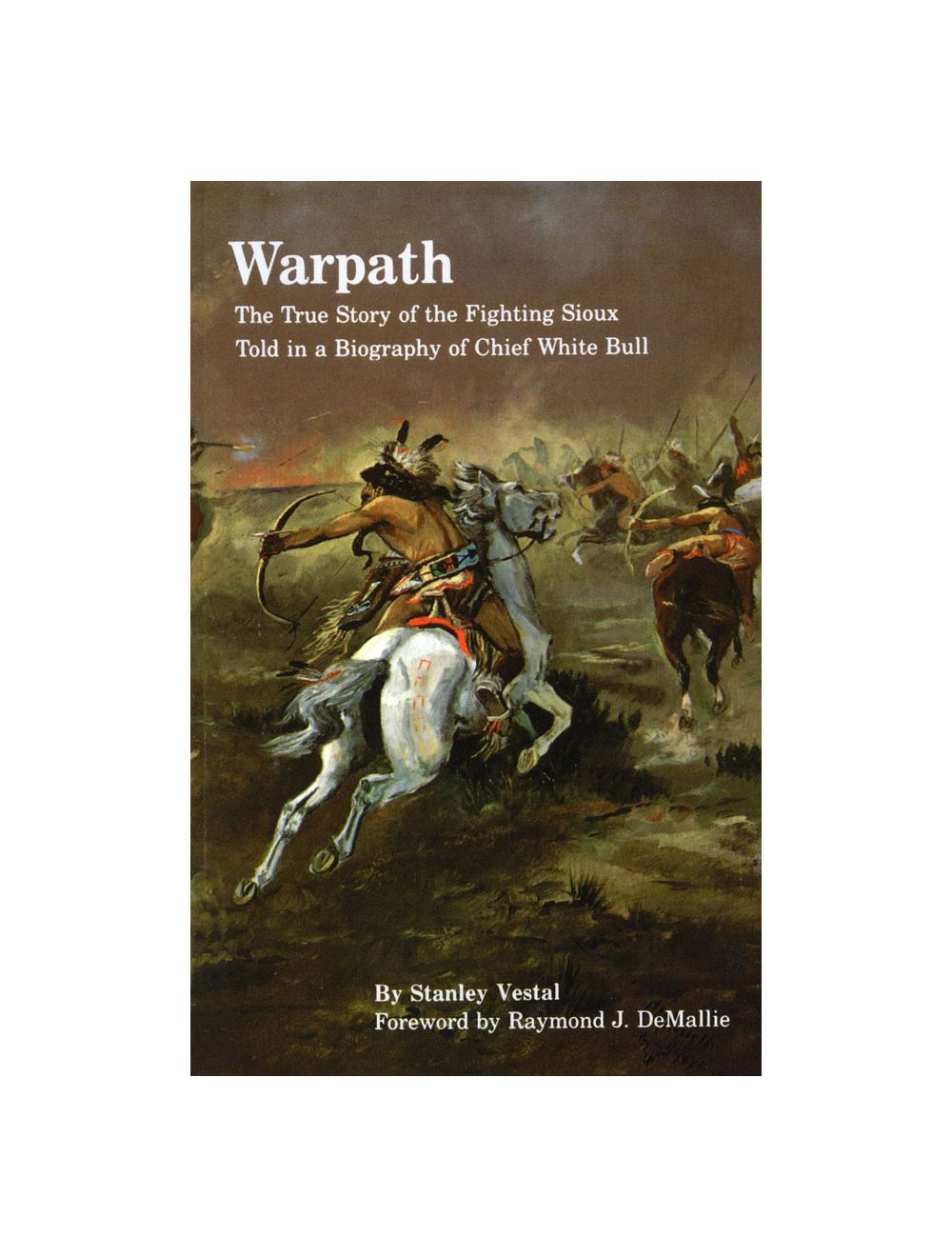Warpath: The True Story of the Fighting Sioux Told in a Biography of Chief White Bull
Stanley Vestal
Foreword by Raymond J. DeMallie
Nephew to Sitting Bull, chief of the Sioux, Pte San Hunka (White Bull) was a famous warrior in his own right. He had been on the warpath against whites and other Indians for more than a decade when he fought the greatest battle of his life. On the afternoon of June 25, 1876, five troops of the U. S. Seventh Cavalry under the command of George Armstrong Custer rode into the valley of the Little Big Horn River, confidently expecting to rout the Indian encampments there. Instead, the cavalry met the gathered strength of Sioux and Cheyenne warriors, who did not run as expected but turned the battle toward the soldiers. White Bull charged again and again, fighting until the last soldier was dead. The battle was Custer's Last Stand, and White Bull was later referred to as the warrior who killed Custer.
In 1932 White Bull related his life story to Stanley Vestal, who corroborated the details, from other sources and prepared this biography. "All that I told him is straight and true," said White Bull. His story is a matchless account of the life of an Indian warrior.
Product DetailsPublisher: Bison Books (June 1, 1984)
Paperback: 291 pages
ISBN: 978-0803296015
Dimensions: 5.5 x 0.77 x 8.5 inches
Stanley Vestal
Foreword by Raymond J. DeMallie
Nephew to Sitting Bull, chief of the Sioux, Pte San Hunka (White Bull) was a famous warrior in his own right. He had been on the warpath against whites and other Indians for more than a decade when he fought the greatest battle of his life. On the afternoon of June 25, 1876, five troops of the U. S. Seventh Cavalry under the command of George Armstrong Custer rode into the valley of the Little Big Horn River, confidently expecting to rout the Indian encampments there. Instead, the cavalry met the gathered strength of Sioux and Cheyenne warriors, who did not run as expected but turned the battle toward the soldiers. White Bull charged again and again, fighting until the last soldier was dead. The battle was Custer's Last Stand, and White Bull was later referred to as the warrior who killed Custer.
In 1932 White Bull related his life story to Stanley Vestal, who corroborated the details, from other sources and prepared this biography. "All that I told him is straight and true," said White Bull. His story is a matchless account of the life of an Indian warrior.
Product Details
Write Your Own Review





